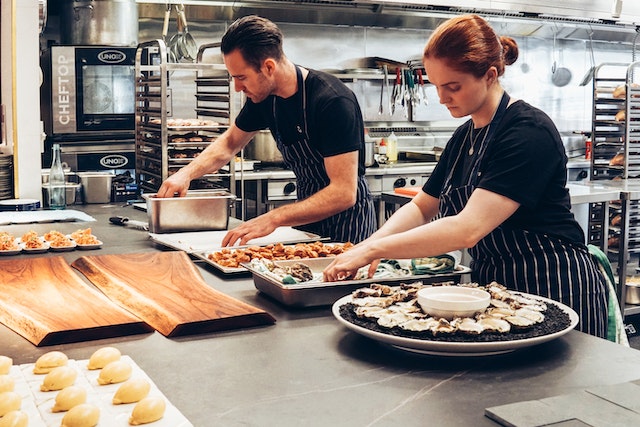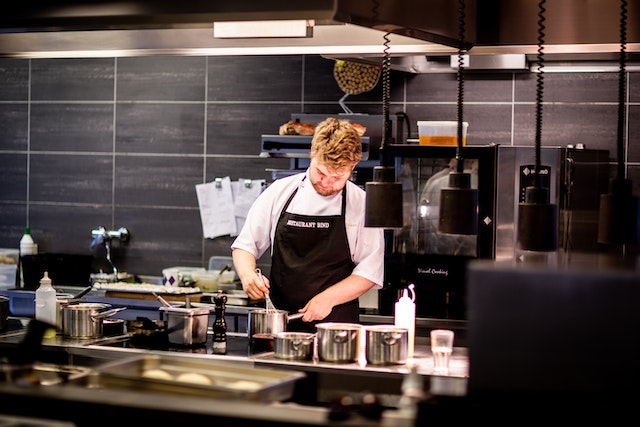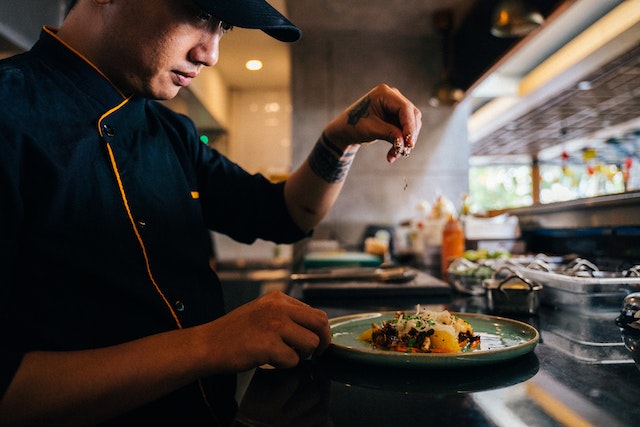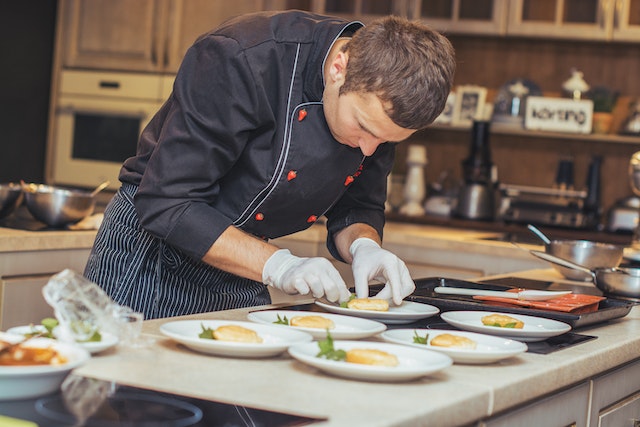Running a restaurant or commercial kitchen can be profitable if done right with the correct resources and industry knowledge. Your kitchen is where your customers will have their meals prepared which means your commercial kitchen needs to be well planned and organized!
When you put together your commercial kitchen, consider the following tips that will help you increase efficiencies and keep your customers happy!
Planning Your Kitchen
Commercial kitchens and restaurants have designated stations for specific tasks that cover the needs of the customers. These include the prep station, sauté station, salad, and pizza stations.
Be sure to set up stations that cater to the specific meals on your menu. This is a particularly good practice for smaller commercial kitchens as it helps mitigate misunderstandings and mistakes in the kitchen.
Ultimately, your goal should be to minimize interruptions and ensure a smooth workflow in your kitchen. This way, your restaurant will run smoothly overall!
Kitchen Layout Improvement
A kitchen that is well-organized and laid out is a space that allows staff to move with ease in the kitchen and ensures orders are ready as fast as possible.

Be sure to consider the spacing between equipment and stations to ensure there are no constraints on mobility and access to workstations and appliances.
Stocking Your Kitchen
After a working plan has been developed for your kitchen, you need to find the right equipment to fill the space. Below are some key items you can purchase that will help facilitate your success as a restaurant owner and give you better profit margins.
Commercial Kitchen Equipment
Chefs and cooks in your kitchen require specific equipment to prepare food for customers and develop new seasonal menu items. This equipment often includes:
- Ovens
- Grills
- Freezers
- Refrigerators
- Ranges
- Steam tables
- Deep fryers
- Kettle cookers
- Heat Lamps
Electric or commercial gas ranges are essential for restaurants, bistros, and cafeterias. These ranges can be used to sauté, simmer and sear food.
Commercial kitchens and restaurants must have commercial refrigeration that will ensure food and drinks don’t go bad or cause safety hazards. Some kinds of commercial refrigeration include:
- Reach-in freezers
- Refrigerators
- Ice machines
- Refrigerated displays
- Walk-in coolers
- Walk-in freezersStorage
Before you put in an order with your food supplier, it’s important to put an organization system in place to ensure that your staff can easily access products, prevent contamination and maintain safety standards.

Like food products, kitchen equipment also needs to be safely stored to ensure that it has a long life and can be used for years to come. A proper commercial kitchen setup ensures that your team can easily access the equipment or ingredients they require.
Proper storage is an essential part of a successful restaurant or commercial kitchen as it removes delays and in turn, improves customer satisfaction and retention.
Common commercial kitchen storage often uses things like:
- Built-in shelves
- Carts
- Trolleys
- Rolling racks
These kinds of storage units come in various sizes and styles that can be optimized as needed by the restaurant owner. These are used both for storage and transporting food around the kitchen.
When considering shelving, you can explore diverse options including
- Open-wire shelving
- Wall-mounted wood or metal shelves
- Glass Shelves
Cleaning Supplies
Running a restaurant or commercial kitchen means maintaining a sanitary environment to ensure consumers are protected from food cross-contamination and other serious health issues including allergies.
Sanitation standards are regulated by authorities at all levels of government that license and regulate foodservice operations. Restaurants need specialized cleaning tools which include:
- Sanitizers
- Bleach
- Oven brushes
- Degreasers
- Scour pads
These items must be used for their designated purpose whether it be cleaning oily grills, dishes, glassware, ice machines, and other equipment in the kitchen.
Staffing the Kitchen
Having great chefs and cooks in your kitchen is critical because they determine the kind of experience your customers will have in your restaurant.
Kitchen staff includes:
- Chefs
- Sous-Chefs
- Cooks
- Dishwashers
- Expos
- Managers
- Delivery Drivers
- Supervisors

Hiring the right staff members will go a long way when ensuring your restaurant’s success!
Once your team members have been onboarded, it’s essential to ensure that they feel appreciated and empowered as employees who are treated and paid well are more likely to stay long-term and meet your high standards.
Optimizing Efficiencies
Ensuring your business runs efficiently is key to keeping your restaurant or commercial kitchen profitable. An efficient kitchen is able to receive orders and prepare them quickly and correctly every time, which ensures your patrons will have a great experience.
Below are a few tips that will help keep your kitchen running efficiently:
Effective Inventory System
A well-planned inventory system will ensure that your employees have access to the products they need to do their job and will help you track supplies and make purchase orders with your suppliers.
Tracking your inventory on a regular basis using the FIFO [First In, First Out] method will eliminate the amount of product that you have to throw out and keep your ingredients fresh for your customers.
Efficient Work Processes
Every restaurant owner should ensure that their staff members have clean and well-organized workstations for food preparation and cooking. Properly establishing these stations will streamline your operations.

A great way to make sure your staff’s workplace needs are met is to take employee feedback and implement suggested changes that will improve your business overall.
Conclusion
An important part of running a restaurant is ensuring that your waste is properly disposed of.
Fryer oil is one of the most difficult substances in a kitchen to get rid of, and cleaning grease traps can be difficult for restaurant staff! Greasecycle is a North Carolina-based company that provides restaurants with grease trap cleaning services.
We even take your used fryer oil and transport it to our company’s Raleigh plant which turns the oil into biofuel and compost, serving both our clients and protecting the environment. We’ll even pay you when we recycle your used cooking oil!
Reach out to us today for more information!




